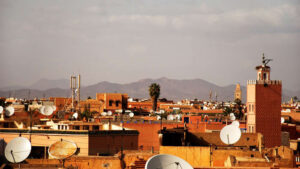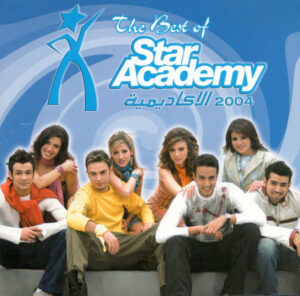As we approach the midterm pause I still feel like I am just scratching the surface of what it means to understand media’s role in the Middle East and North Africa. I feel I have a good grasp on how media has changed over time in this region and the unique characteristics of political processes in countries in this region that control how information is spread and distributed. Before these past few weeks, I had a narrow view of media in this region. I saw it as a region with extreme censorship and lack of entertainment qualities in this media. Only now am I beginning to unpack the differences and layers in censorship across this diverse region and see their media market is not that different than the Western world’s in terms of desirable media entertainment qualities. The things that have surprised me most so far are:
- The role of satellite TV in shaping both national and international media markets in this region
- Star Academy as a political phenomenom
Sattelite Television

By far the most surprising and fascinating thing I have learned so far is the role satellite television played in transforming the media market in the Arabic world. With the rise of satellite television access, media became deterritorialized in this region. While the initial effect of having access to more channels and international news is predictable, the effects after are what surprised me the most. Television became much more competitive and not only private television stations, but government-owned stations were forced to create more engaging and expansive content. The government-owned news networks could no longer just stream one opinion but they had to bring in more opinions to compete with channels such as Al Jazeera that engaged audiences with controversial debates and opinions. It is surprising to me that governments were willing to sacrifice streamlining opinions in order to compete in the television market. Furthermore, the increase in quality of entertainment based television such as soap operas and reality shows surprised me.
Star Academy
Another suprising phenomenom across this region was Star Academy as a political phenomenom. Star Academy gave people in this region the chance to democratically vote, something they do not regularly do in their respective countries. Often, people would vote for countries rather than the

singers themselves. It is an interesting way to view public opinion considering polling options are not regularly avaiable in this region.
Changes in Behavior
While I definetly view mass media in the Middle East differently and as much more complex, I don’t know if it has changed my opinions of media in the West. The one thing I have learned to consider when consuming mass media is who owns the media companies and if they are trying to set an agenda. This was not something I thought much of before and took everything as just reporting the news. Now I know to critically consider the companies I consume media from.

